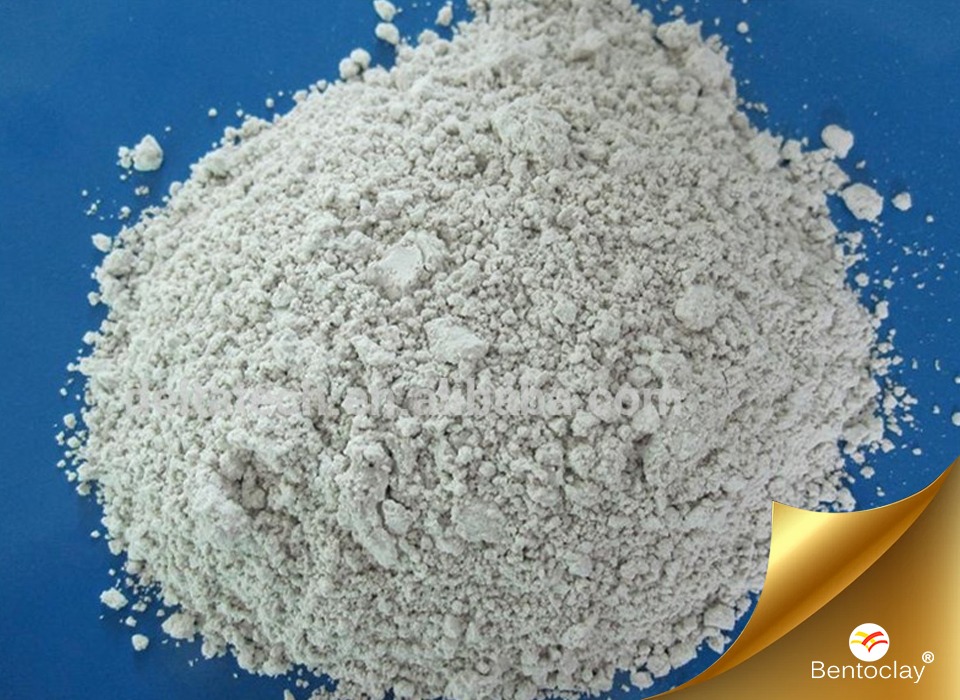Attapulgite

The clay mineral Attapulgite derives its non-swelling needle-like morphology from its three-dimensional crystal structure. The shape and size of the needles result in unique colloidal properties, especially resistance to high concentrations of electrolytes, and give high surface area, high porosity particles when thermally activated. Examples of industrial applications of attapulgite are reviewed with emphasis on how these characteristic properties function in the various end-uses.
The atomic structure of attapulgite is described in some detail in another paper presented at this Conference (Preisinger, 1963), along with the structural changes that accompany thermal activation treatments. For purposes of this discussion, we need only consider the structure in a qualitative manner, since particle shape and size give attapulgite its unusual properties.
In attapulgite long double chains of silica tetrahedra run parallel to the fiber axis. They are joined by magnesium and aluminum in octahedral coordination to produce strips similar in structure to the three-layer minerals. These three-layer strips are joined at the corners by Si–O–Si bonds into a
structure resembling a checkerboard in cross-section, with free channels of about 3.7 by 6.0 ~ in cross-section running the length of the needles. Preisinger (1963) has shown how these channels can collapse when attapulgite is dehydrated, for the open-channel structure is stabilized by the water of composition which completes the edges of the octahedral strips. Collapse of the channels on dehydration is the probable cause of the abrupt decrease in surface area from about 190 to 125 m2/g observed by Barrer and Mackenzie (1954), since nitrogen molecules are incapable of entering the collapsed channels.
From the structure of attapulgite, it is fairly obvious that two of the unusual characteristics of attapulgite should exist. First, since the structure is three-dimensional, no montmorillonite-type swelling can occur. Second, it is apparent that cleavage will be easiest along the Si–O–Si bonds holding together the three-layer strips-hence the needle-like rather than plate-like particle shape.
Packing
Available in Raw Material (Loose), Powder Form packed in 25Kg, 50Kg, 1MT Jumbo Bags.
Applications
COLLOIDAL
Actions: Viscosity building, gelling, thickening, protective colloid, suspending agent, adsorbent, bonding agent.
- Oil-base and water-base foundry sand binders
- Adhesive viscosity control
- Oil well drilling muds
- Latex paint thickener and gelling agent
- Pharmaceutical thickener and adsorbent
- Liquid suspension fertilizers
- Polishes–suspending agent for abrasives
- Wax emulsion stabilizer
- Metal drawing lubricants–suspending agent
- Laundry washing powders
- Bonding agen~ for granulation of powders
NON COLLOIDAL
Actions : Adsorption, absorption, catalyst, mild abrasive, parting agent.
- Petroleum refining, decolorizing, neutralizing, brightening, desulfurization, deodorizing
- Anti-caking agent for ammonium nitrate, etc.
- Carrier for granular and powdered agricultural chemicals (insecticides, herbicides, etc.)
- Flatting agent in paints
- Pharmaceutical intestinal absorbent
- Floor absorbents
- Animal bedding (cats, laboratory animals)
- Polish ingredient for mild abrasive action
- Flowability additive to dry fire extinguisher powders
- Catalyst in NCR paper
- Catalyst carrier
- Olefin polymerization catalyst
- Chromatographic adsorbent
- Drying of oils
